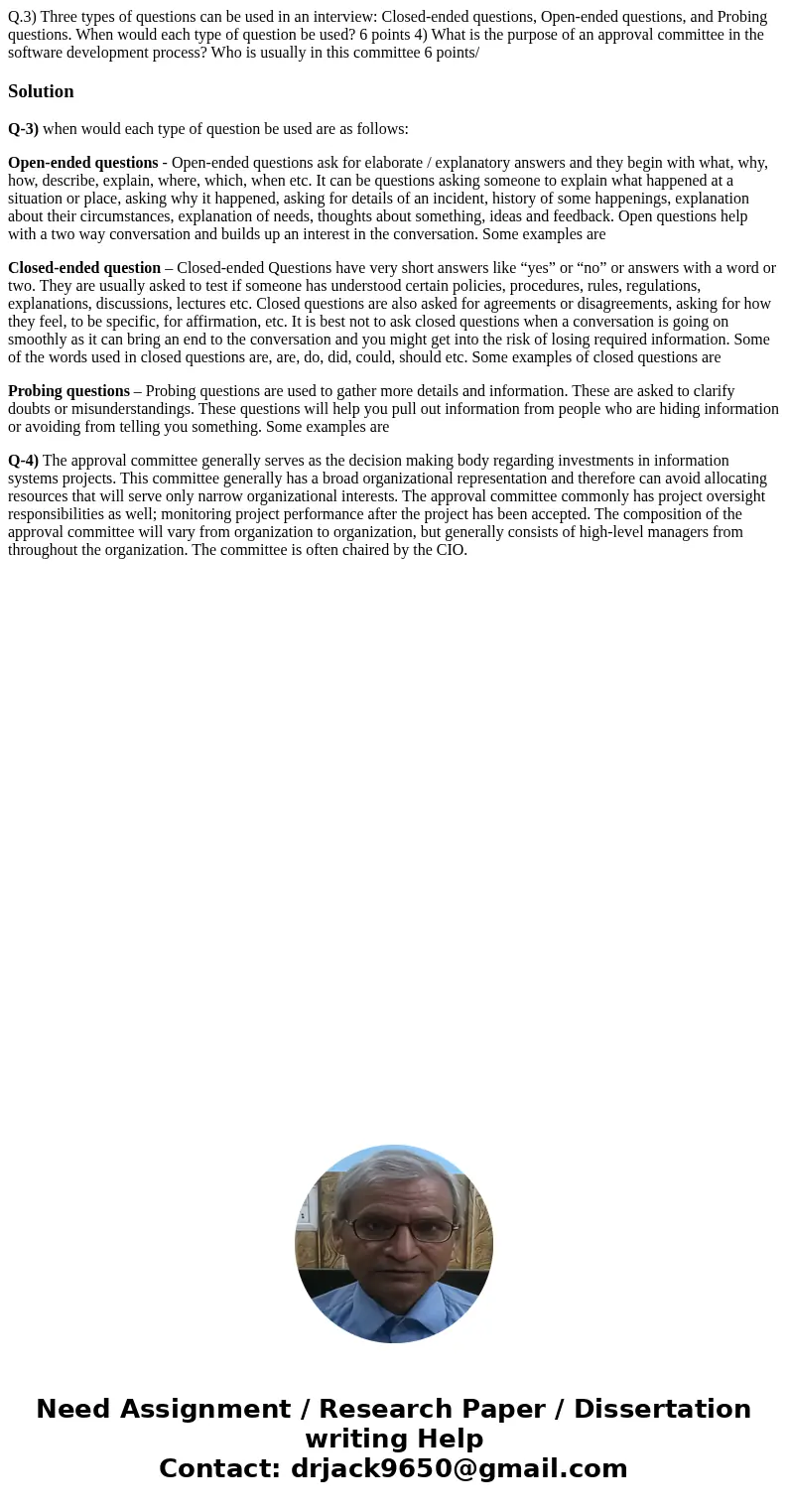Q3 Three types of questions can be used in an interview Clos
Solution
Q-3) when would each type of question be used are as follows:
Open-ended questions - Open-ended questions ask for elaborate / explanatory answers and they begin with what, why, how, describe, explain, where, which, when etc. It can be questions asking someone to explain what happened at a situation or place, asking why it happened, asking for details of an incident, history of some happenings, explanation about their circumstances, explanation of needs, thoughts about something, ideas and feedback. Open questions help with a two way conversation and builds up an interest in the conversation. Some examples are
Closed-ended question – Closed-ended Questions have very short answers like “yes” or “no” or answers with a word or two. They are usually asked to test if someone has understood certain policies, procedures, rules, regulations, explanations, discussions, lectures etc. Closed questions are also asked for agreements or disagreements, asking for how they feel, to be specific, for affirmation, etc. It is best not to ask closed questions when a conversation is going on smoothly as it can bring an end to the conversation and you might get into the risk of losing required information. Some of the words used in closed questions are, are, do, did, could, should etc. Some examples of closed questions are
Probing questions – Probing questions are used to gather more details and information. These are asked to clarify doubts or misunderstandings. These questions will help you pull out information from people who are hiding information or avoiding from telling you something. Some examples are
Q-4) The approval committee generally serves as the decision making body regarding investments in information systems projects. This committee generally has a broad organizational representation and therefore can avoid allocating resources that will serve only narrow organizational interests. The approval committee commonly has project oversight responsibilities as well; monitoring project performance after the project has been accepted. The composition of the approval committee will vary from organization to organization, but generally consists of high-level managers from throughout the organization. The committee is often chaired by the CIO.

 Homework Sourse
Homework Sourse